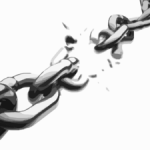 So the Atheist channel at Patheos has been chatting about whether or not atheist parents should teach their children about religion, and whether or not atheist parents should raise their children to be atheists. The discussion appears to have started over at Natural Wonderers, picked up by On the Margin of Error and continued by Love, Joy, Feminism and Camels with Hammers.
So the Atheist channel at Patheos has been chatting about whether or not atheist parents should teach their children about religion, and whether or not atheist parents should raise their children to be atheists. The discussion appears to have started over at Natural Wonderers, picked up by On the Margin of Error and continued by Love, Joy, Feminism and Camels with Hammers.
I’ve thought quite a bit about this topic having been raised to be conservative christian, and leaving that mentality as an adult. I feel scarred by religion in many ways, and that makes me feel the urge to “protect” my children from it. On the other hand, I remember the scorn and disgust and fear that permeated conversations about people who believed differently (aka wrongly) than we did, and I don’t want my children to have that fear and distrust of people, and the self-loathing that arrives when you begin to question how much of your parents beliefs are a good fit for you personally.
My approach (even in the early days of questioning) has been to be honest about how I think about religion myself, but to answer questions neutrally and explain that people think and feel and believe all sorts of different things, and stress that kindness and respect to all people is important. I give information based on what we as humans actually know as fact (example: What happens when we die? Our bodies decompose and become part of the earth again, and the people who loved us when we were alive always remember us.) and present religious understandings as ideas and stories people have about life ( example: Some people think there is a part of a person called a soul that stays alive when our bodies die. Some people think that the soul gets put into a new person to live life again, and others think the soul goes to a different place to live. But nobody knows those things for sure.)
My now 7 year “Ms Action” probably has the most memory of church and being taught the christian understanding of god, and even today she will recognize the cross as a christian symbol, and sometimes express that she doesn’t want to go to a church where they talk about god dying on a cross. These days we’ve been to a liberal church a few times, but honestly, we work weekends, and prize the moments we are all home together as a family, so we don’t take the time to attend church services that often.
All this to say, that when I saw the conversation going around, I thought I’d just ask my kids what they think. I came up with the questions on the fly, and interviewed my 6 year old (“Ms Drama”) and 7 year old (“Ms Action”) separately so they couldn’t copy the others ideas. I wrote down their answers as they spoke, they are pretty much word for word with some “ums” and tangents about what was for dinner taken out.
What is a god?
Ms Action: A god is a person in a story who takes care of people and watches them, and I’m not sure but I think he lives in the sky.
Ms Drama: It’s a guy who dies and lives and dies and lives over and over again. He’s supposed to help people.
What do you think about god?
Ms Action: I don’t think that god is real.
Ms Drama: I think it’s not real. I think that it’s fine for people to believe in him.
Why don’t you think god is real?
Ms Action: Because I’ve never seen god before and I don’t know very much about god.
Ms Drama: Because I’ve never seen him before. I don’t know him.
Some people think that believing in god is what makes you a good person, what do you think makes someone a good person?
Ms Action: Being a good person means being nice and kind to people, and share and be respectful and play with your friends, and not yell or be mean or racist.
Ms Drama: Being a good friend. Not robbing the bank.
Is it a good thing or a bad thing to believe in a god?
Ms Action: I don’t think it’s good or bad to believe in a god. People can learn about different gods and decided to believe in one if they want, but it is their choice, no one can make them believe, or say they have to because other people do.
Ms Drama: God can be a nice thing, because people can think that and live their life, and some people don’t think about god, and that’s ok. But a mean god would be scary, and that’s not good.
What kind of gods have you heard of?
Ms Action: I think I’ve heard of a moon god, a sun god, an earth god, a wind god and a cloud god. I think there could be a car god, or a god of the city, and a rocket ship god and a god of the stars in the sky.
Ms Drama: The sun god. I heard that gods hold up people. A moon god. And a friendship god.
Anything else you want to say about god?
Ms Action: I think that sometimes even when people believe in a god, or don’t believe in a god, they might learn new things and change their mind. And that’s OK. It’s important to decide what you think. And sometimes people just don’t know what they think about god, and that’s OK too, sometimes people just wonder.
It’s wonderful to be yourself, not anybody else, no matter what people tell you to believe. One time my friend said that if you believe in god you go live in the clouds when you die, but if you don’t you drown in hot lava. I told him that a mean god like that would make it not nice to even have a god, that would be believing in a really mean god, and believing in a really mean god like that, might make you be mean to people. A god like that must only care about himself.
There are lots of stories about god, maybe some are real, maybe some are a little real (that’s called realistic fiction mom), maybe some are not real. I think people should be very careful about what they believe, because if they believe in a god who tries to teach people bad things, than they could end up doing bad things to other people.
Ms Drama: My friend said that god puts people in lava when they don’t believe in him. I don’t know why anyone would do that. Why are there so many different stories about god?













